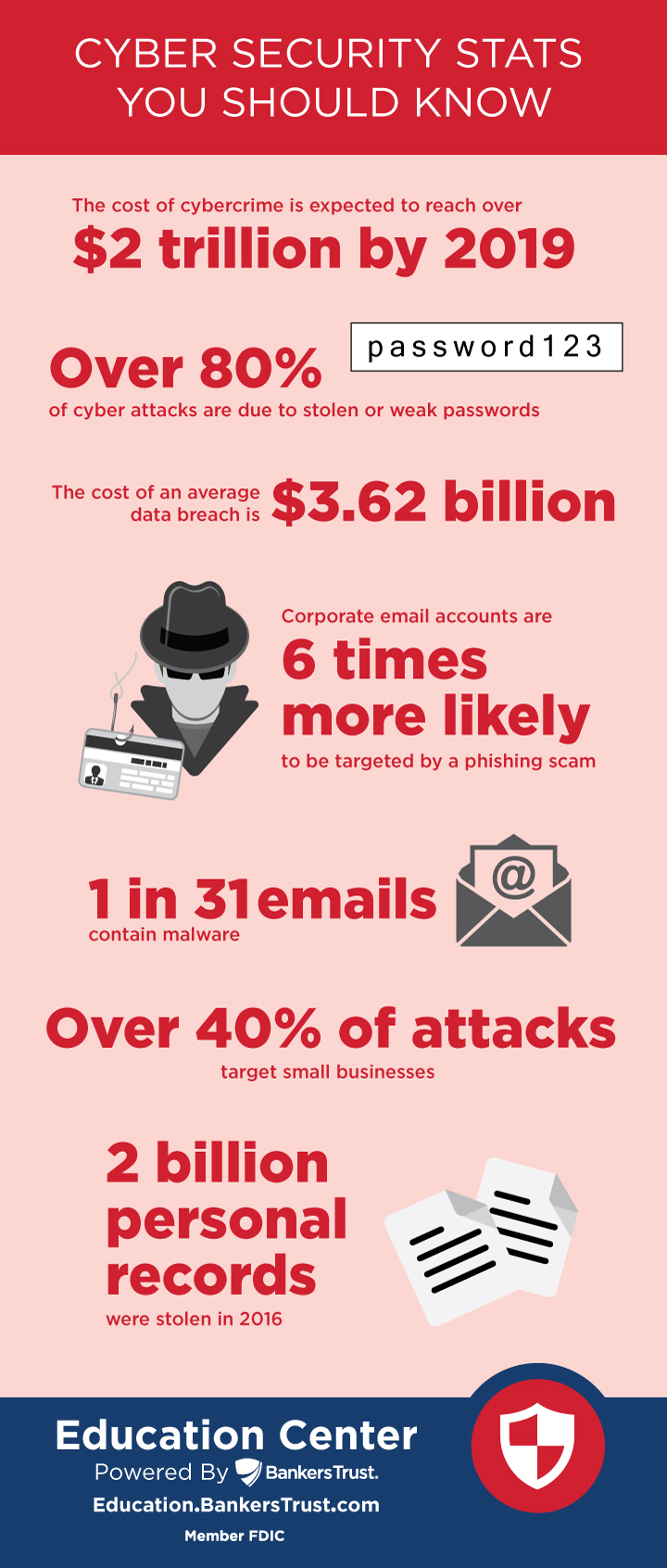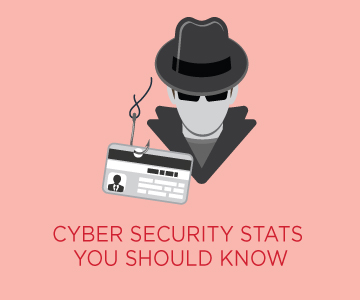A quick Google News search of the word “hacked” will reveal more than 16 million articles about businesses, individuals and even governments that have been victims of cyber security attacks. If you’ve been following the Education Center for a while now, you’ve learned about ways to protect yourself and your accounts from these attempts at fraud. Often times, it comes down to creating strong passwords and regularly changing them. For other types of attacks can be prevented by knowing what to look for in suspicious emails, phone calls and messages.
As a financial institution, we’re intensely focused on protecting our customers’ money and information, which is why we celebrate National Cyber Security Awareness Month each October. If you’re still wondering why cyber security is important – or thinking “this will never happen to me” – here are a few recent statistics to keep in mind.

- The cost of an average data breach is $3.62 billion
- The cost of cybercrime is expected to reach over $2 trillion by 2019
- Over 80% of cyber attacks are due to stolen or weak passwords
- Over 60% of Americans are willing to pay a ransom for internet extortion
- 1 in 31 emails contain malware
- Over 75% of all legitimate websites have unpatched vulnerabilities
- Because there are so many cyber security attacks, as many as 44% go uninvestigated
- Corporate email accounts are 6 times more likely to be targeted by a phishing scam
- Over 40% of attacks target small businesses
- 69% of small businesses lack the budget and staff to keep up with threats, and only 33% believe their organizations can prevent an attack from occurring
- 2 billion personal records were stolen in 2016
What you can do to protect yourself from cyber security threats
The more you know about cyber crimes, the better you can protect yourself from malicious attacks. Here are a few steps you can take today to improve your online security:
- Change your passwords on any account that includes personal/sensitive information – email, financial accounts, social media, etc.
- Replace old passwords with a separate complex password for each account. Do not use the same password in multiple places!
- Familiarize yourself with business email compromise and the signs of an email scam to watch for.
Stats from: IMB, Juniper Research, Panda Security, Symantec, Cisco, Small Business Trends, Ponemon Institute, CNBC and ISACA.








 Equal Housing Lender. SBA Preferred Lender. NMLS #440379
Equal Housing Lender. SBA Preferred Lender. NMLS #440379